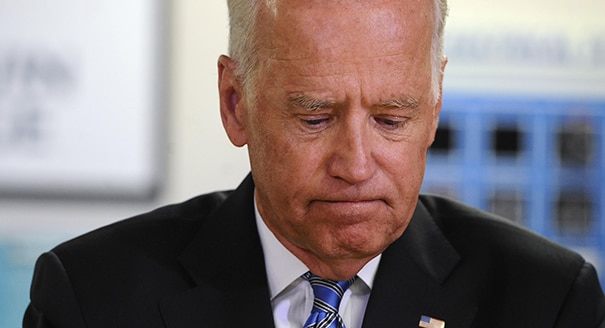
As Trump leaves office the only president to have not started a new war since WWII—and Joe Biden, who supported so many of America’s wars, including (vice-) presiding over the second and third Iraq Wars, heads into office—the talk is again what should be the most terrifying words anyone outside the US could hear: More American Leadership. Thing is, we haven’t cleaned up the leftovers from the last bout of leadership yet.
President-Elect Biden pulls no punches about how he feels about Trump’s lack of war, saying “Trump has abdicated American leadership in mobilizing collective action to meet new threats. This is the time to tap the strength and audacity that took us to victory in two world wars and brought down the Iron Curtain.” His SecState-nominee Antony Blinken used the word “leadership” in a speech 16 times. Biden himself wrote an essay in Foreign Affairs titled “Why America Must Lead Again.” Introducing his national security nominees, Biden said “America is back, ready to lead the world.”
Let there be no doubt, in foreign policy terms “leadership” is the bipartisan and benign euphemism for America First nationalism. And that usually means some sort of war. Biden already has his warriors in place from the Obama years: Bloody Susan Rice, Blinken at State, Lloyd Austin as Secretary of Defense. There will be others filling in the mid ranks as those principals call in their former deputies, who call theirs.
The problem with America’s leadership spurts is that they are often left uncompleted. They are played for US domestic political consumption and leave behind a mess someone else has to clean up when politics shift. Worst of all, no one in America seems to ask those overseas who are about to be freed, liberated, encouraged to revolt, or otherwise enlightened by the arrival of the American Empire if they indeed want any leadership today.
So maybe before spewing out any new leadership, Biden could start by cleaning up some of the leadership he and others left behind. Start with Iraq.
Quick, Jeopardy-style, when did the Iraq War end? Correct answer of course is “What is never.” America wrecked the place from the air in 1991, then invaded by land in 2003. Those American troops mostly left in 2010, then returned in 2014, and today loiter like dropouts in the high school parking lot in unknown but relatively small numbers. The American Embassy in Iraq, physically still the size of the Vatican and once the largest embassy in the world in diplomatic headcount, sits mostly empty with a security guard-to-diplomat ratio that would embarrass any Twitter warrior.
You would wish that was all, but the horrors of the Iraq Wars are such that even bodies already buried find their way to the surface. Among the many US atrocities few today know about (Google “Haditha Massacre,” “Mahmudiyah rape,” “Abu Ghraib torture”) loom the Nisour Square murders.
On a hot as hell September 16, 2007, Blackwater mercenaries hired by the State Department as security killed 17 Iraqi civilians—including two children—and injured 20 in Nisour Square, central Baghdad. The US lied and prevaricated for years, until finally the truth slithered out that none of the Iraqis were armed, the Blackwater guys panicked, and their so-called defensive fire was beyond any legitimate rule of war.
The State Department tried to intervene, allowing the defendants to claim State’s own Diplomatic Security officers had offered them on-the-street immunity in return for later recanted testimony (Nisour Square wasn’t the only time State lied to cover for Blackwater). It took seven years until a US court convicted four Blackwater employees. All four were pardoned by Trump in December 2020.
“That was years ago” say many of the same Americans willing to connect a police shooting today to the first slaves arriving on this continent in 1619. Though the average American might vaguely remember something bad happened with Blackwater, every Iraqi knows what Nisour Square stands for: American invasion, false promises of freedom, arrogant use of power. The same way Vietnamese know My Lai and thousands of other such incidents whose names never made it into the American press. Or perhaps how the remaining scraps of the Lakota people still reference Wounded Knee. No reckoning allowed save the marvelous sleight of hand of America’s fragile memory.
Read the whole article here.

